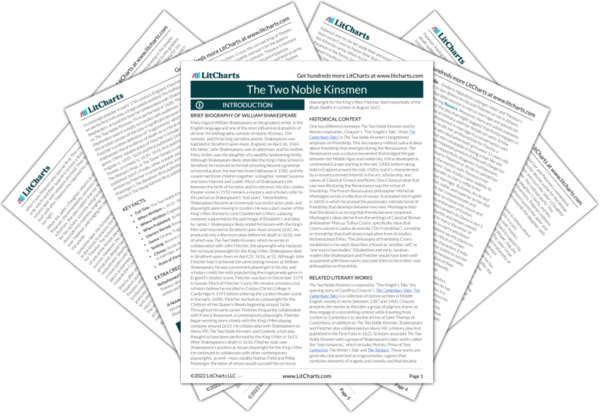Arcite continues to behave chivalrously, and Palamon continues to behave childishly. It's a petty attempt at a power move for Palamon to claim that Arcite should know that he's looking upon Palamon's woman whenever he looks at Emilia. Furthermore, Palamon's claim isn't even true: at this point, Emilia still doesn't know Palamon exists, so it's presumptuous of him to claim her as his own. The cousins continue in their delusional thinking, as they devote themselves to some absurd notion of honor while indulging their own romance-driven madness.
